Barryton Welcomes M66 Cannabis Co., a Local Market Innovator
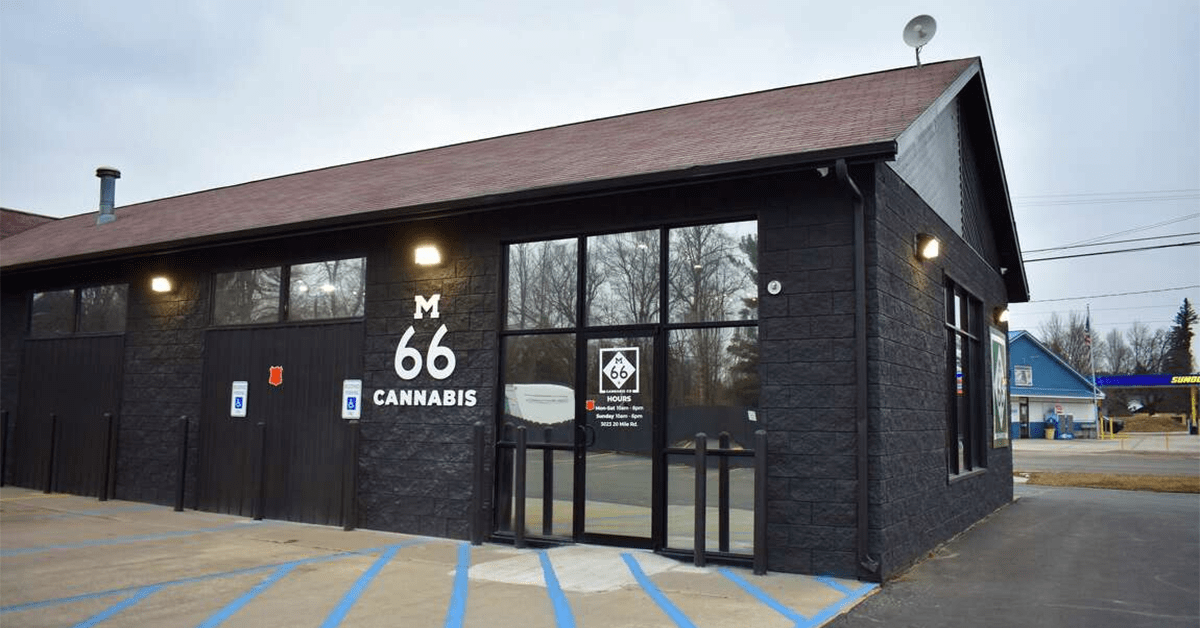
Barryton, Michigan, recently welcomed a new addition to its community with the opening of M66 Cannabis Company, a marijuana dispensary. The grand opening took place on December 29th at their location, 3023 20 Mile Road, which was previously an abandoned car wash. The transformation of this site marks a significant milestone in the company's journey, which began even before 2019.
Grant Nouman, the owner of M66 Cannabis Co., detailed the challenging path to opening the dispensary. The initial focus was on cultivation, but the onset of the pandemic in 2019 and subsequent market shifts in the cannabis industry prompted a pivot to retail. Despite these challenges, Nouman noted the vital support received from the local community.
The dispensary's approach includes a strong commitment to hiring locally, with an emphasis on integrating into the Barryton community. Nouman highlighted the importance of contributing to the local economy and supporting veterans, with the company employing local residents, including a veteran.
M66 Cannabis Co. boasts a comprehensive range of marijuana products, including flowers, edibles, extracts, pre-rolls, tinctures, and branded merchandise. A particular highlight is the 'Speak Easy' hybrid strain, sourced from Fawn River Cultivation Company and featuring a 22% THC content.
The company is dedicated to supporting local businesses, regularly purchasing from nearby growers and cultivators. This local focus was evident during the bustling grand opening, which Nouman described as a testament to the community's anticipation and support.
Significant renovations were undertaken on the former car wash, including the creation of a drive-through pickup lane and secure product storage. Nouman also acknowledged some initial skepticism in the community regarding recreational cannabis licensing but noted the predominantly positive response from locals.
Looking ahead, M66 Cannabis Co. plans to expand its product range, including a CBD line and offerings tailored for pets and athletes. Education is a key focus, with staff trained to advise on products suited for various medical needs.
Michael Messina, the general manager, expressed his enthusiasm for the dispensary's potential impact on Barryton. He emphasized the benefits of cannabis as an alternative to traditional prescription drugs and the positive feedback received from customers.
Nouman outlined ambitious goals for the company, aiming to increase market share and contribute to the local economy by attracting customers from surrounding areas. The company also plans to engage in community events and promote the dispensary throughout West Michigan.
M66 Cannabis Co. is actively involved in the community, participating in local events like the Lilac Festival and Barryton Days. Nouman emphasized the company's commitment to Barryton, expressing gratitude for the support received and the desire to foster strong community relationships.
As M66 Cannabis Co. continues to grow, Messina looks forward to building connections with customers and contributing positively to Barryton's community fabric.
Pleasantrees Unveils Mystery Weed Contest with a Grand Miami Getaway Prize
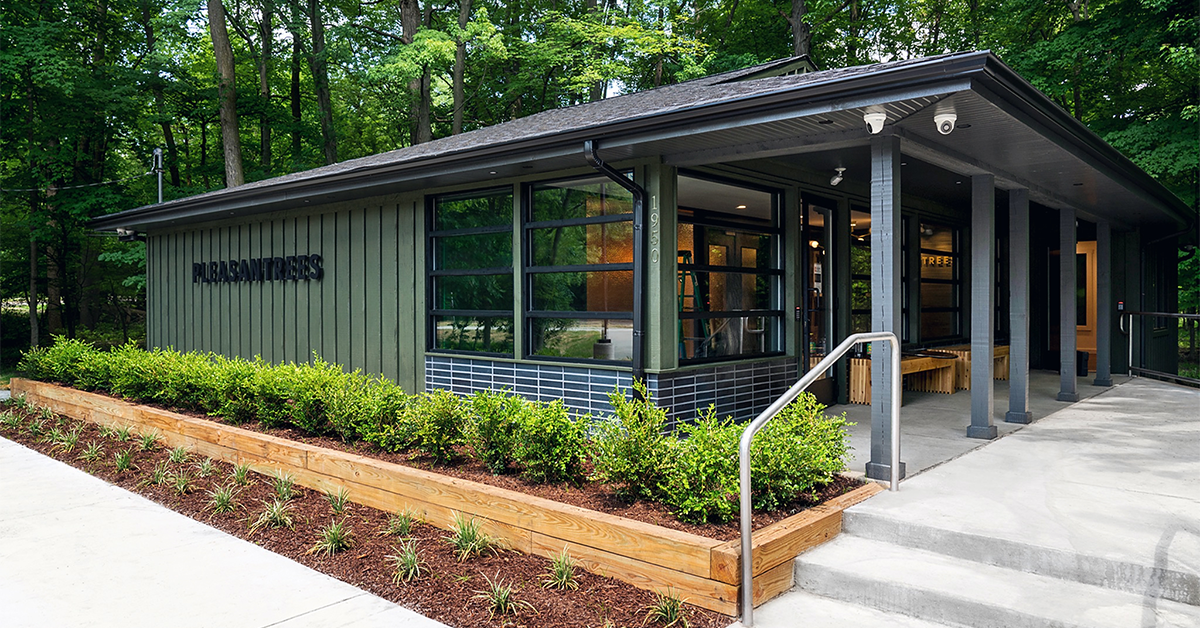
Pleasantrees has launched an innovative contest, the Mystery Weed contest, offering cannabis enthusiasts an engaging way to test their knowledge of various strains. In a unique twist that extends the festive spirit into the New Year, Pleasantrees is introducing mystery strains throughout January, challenging consumers to identify them correctly for exciting rewards.
During this month, Pleasantrees is bringing back four of its most popular cannabis strains, but with a catch: their identities are hidden. To be in the running for the grand prize, participants need to correctly guess all four mystery strains. Those who successfully identify three out of the four will still win a prize – a free ounce of Pleasantrees' premium craft cannabis.
To be eligible for the contest, participants must be members of the Loyaltrees loyalty program at the time of their contest entry. Joining the program is easy and free, accessible through the Pleasantrees app, by texting "JOIN" to (313) 662-2747, or by visiting their rewards website.
The mystery strains will be available for purchase in 1/8th quantities for a limited time. An entry form for the Mystery Weed contest can be accessed via a QR code in-store at the time of purchase. This form will offer a hint for each strain, aiding participants in their guesses. The strains will feature a diverse range of terpene profiles and effects, adding to the challenge and intrigue.
The highlight of the contest is the grand prize – a trip for two to Miami, Florida, which includes airfare and a two-night hotel stay. The contest concludes on January 31st, 2024, and is open to participants 21 years of age or older.
Celebrating Over 10 Years of Service: The Journey of Northern Specialty Health
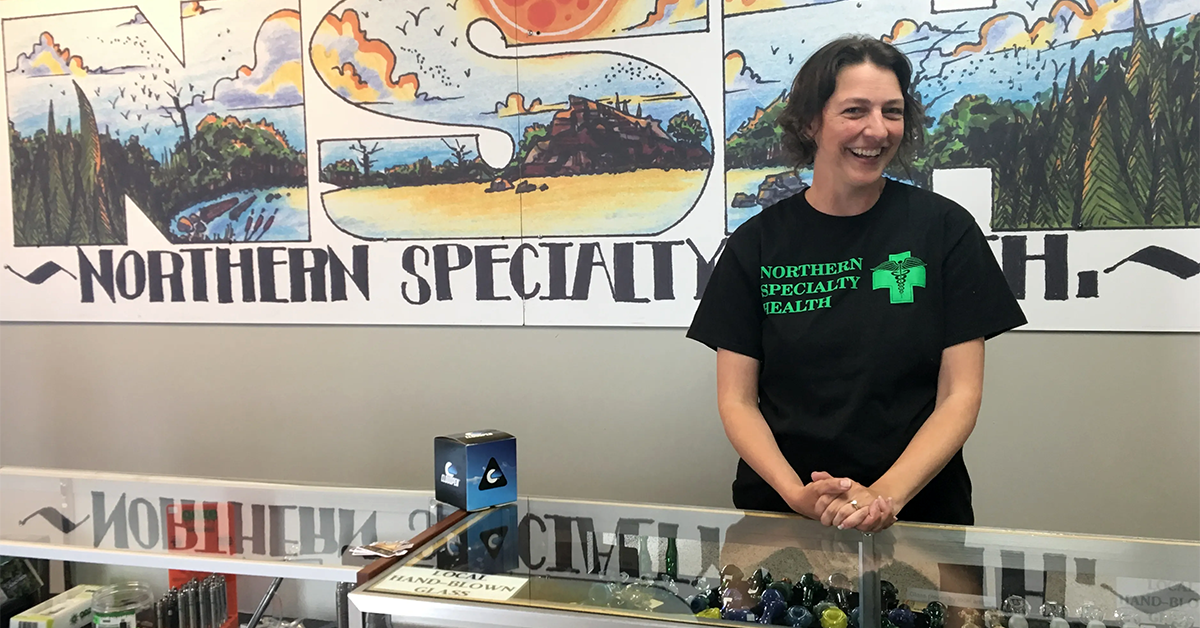
Northern Specialty Health, a prominent cannabis retailer in the Upper Peninsula (U.P.), has recently celebrated a significant milestone, marking over a decade of operation. Notably, it stands as the oldest independent cannabis shop in the U.P., having been the sole dispensary in the region for many years.
The business saw a change in ownership in 2013 when it was acquired by Penny and Ryan Milkey. Motivated by their personal experiences as patients and caregivers, the Milkeys embarked on this venture to provide essential medicinal options to the local community.
Penny Milkey shared insights into the positive impact their business has had on the community. She recounted testimonials from customers who have experienced improved sleep, better appetite, and overall enhanced well-being since using their products. Notably, some customers have reported reduced reliance on other medications or decreased alcohol consumption.
However, the landscape of the cannabis market has evolved, especially following the legalization of marijuana. This change has led to an influx of dispensaries throughout the county and the U.P., altering the competitive dynamics. According to Penny, while Northern Specialty Health previously attracted customers from beyond state lines, the proliferation of shops at the borders has shifted this trend. Nevertheless, she highlighted the unwavering support from local customers and the continued patronage from out-of-state visitors and tourists.
Despite these market changes, Penny emphasized their commitment to the business and the community. She expressed a strong affinity for both the cannabis plant and the community they serve, underscoring that their operations are driven by a genuine desire to help people.
As Northern Specialty Health continues its journey, the Milkeys remain dedicated to their mission of providing valuable medicinal alternatives and fostering a supportive community around their business.
Ypsilanti Mulls Over Psychedelic Plant Decriminalization
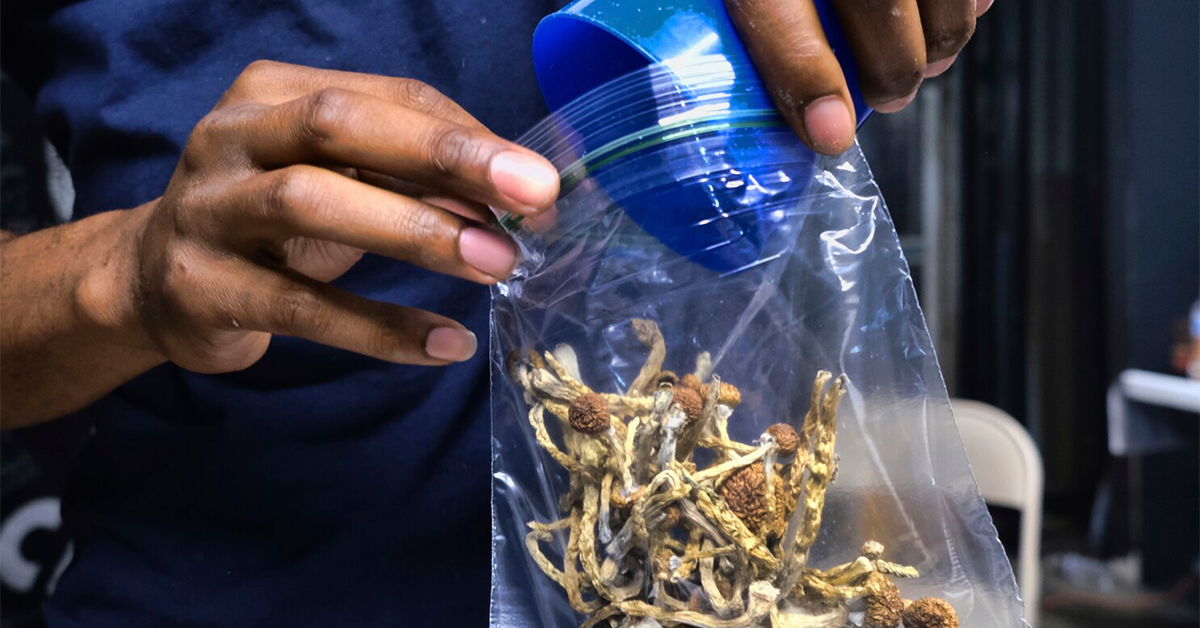
Editorial Note: Although this topic does not directly concern cannabis, it is closely related in terms of policy reform and decriminalization efforts. Given the relevance of these issues to our audience, we believe this news is significant and pertinent to our community.
In a significant policy shift, Ypsilanti city leaders are poised to vote on the decriminalization of psychedelic plants and fungi, including "magic mushrooms," in the upcoming year. This proposal, discussed by the City Council on December 19th, was initially brought to the table by Decriminalize Nature Michigan, an advocacy group championing the decriminalization of entheogenic plants, fungi, and related compounds.
Entheogens, a term derived from Greek meaning "becoming divine within," include substances such as ayahuasca, ibogaine, mescaline, peyote, and psilocybin mushrooms. These substances, recognized for their hallucinogenic properties, are currently illegal under both state and federal laws.
Larry Norris, a co-founder of Decriminalize Nature and a University of Michigan alumnus, argues for a new approach that respects individual sovereignty and the right to interact with nature without fear of legal repercussions. Norris, along with other activists, points to the 27 cities across the United States that have already adopted similar decriminalization policies since mid-2019. This list includes Detroit, Ferndale, Hazel Park, and Ann Arbor in Michigan.
In 2020, Ann Arbor City Council passed a resolution making these psychedelic plants a low priority for law enforcement, a stance subsequently mirrored by the Washtenaw County Prosecutor's Office. Cornelius Williams, an Ypsilanti resident and outreach director for Decriminalize Nature Michigan, argues that Ypsilanti should align with these policies for greater cohesion.
Advocates of decriminalization not only emphasize the spiritual significance of these substances but also point to their potential medical benefits. Studies suggest that these entheogens can be effective in treating mental health issues like PTSD, depression, and substance use disorders. Personal testimonies, like that of Matt Strang, who spoke to the city council about using psychedelics to manage his depression during substance recovery, underscore these claims.
Ypsilanti's City Council, presented with a resolution for decriminalization, discussed the need for an ordinance change. Mayor Nicole Brown and Council Member Desirae Simmons expressed support for this initiative. Simmons also hopes for a city statement backing state-wide legislation proposed by State Sen. Jeff Irwin for decriminalization.
Norris, in his presentation, distinguished these plants and fungi from typical recreational drugs, highlighting their traditional use in ceremonial contexts. He acknowledged their risks but compared them to legal substances like alcohol, tobacco, and pharmaceuticals, suggesting they pose less danger.
As the city of Ypsilanti deliberates this policy shift, it stands at the forefront of a broader movement seeking to redefine the legal status and societal perception of psychedelic substances.
Continued Decline in Adolescent Substance Use Post-Pandemic, Reveals Latest Survey

The latest findings from the Monitoring the Future survey, conducted by the University of Michigan and financed by the National Institute on Drug Abuse, reveal a significant trend in adolescent behavior. The 2023 data indicates that the percentage of teenagers using illicit substances has remained below the pre-pandemic levels noted in 2020. This continuation suggests a lasting change in substance use patterns among adolescents following the initial drop observed after the onset of the COVID-19 pandemic.
The survey, which annually collects self-reported data on substance use from eighth, 10th, and 12th graders, showed that in 2023, 10.9% of eighth graders, 19.8% of 10th graders, and 31.2% of 12th graders reported using any illicit drugs in the past year. These figures, although reflective of the lowered levels of 2022, highlight a steady trend in adolescent behavior.
Richard Miech, the study's lead at U-M's Institute for Social Research, emphasized the importance of these findings. He noted that the persistent decline in teen substance use is significant, potentially indicating long-term reductions in future drug use trajectories. The survey, which also measures students' perceptions of drug harm, disapproval of use, and perceived availability, is crucial for understanding and tracking these behavioral trends.
In 2023, the survey captured responses from 22,318 students across 235 schools in the U.S. and found that the most commonly reported substances were alcohol, nicotine vaping, and cannabis. Notably, alcohol use among eighth and 10th graders remained stable, while there was a decline in use among 12th graders. Nicotine vaping showed a stable trend in eighth graders but declined in the higher grades. Cannabis use remained steady across all three grades surveyed.
For the first time in 2023, the survey included questions on Delta-8 THC use, revealing that 11.4% of 12th graders reported using this substance in the past year. Other illicit drug use outside of marijuana also remained stable among the surveyed grades.
In terms of abstinence from marijuana, alcohol, and nicotine, there was an increase among 12th graders, with 62.6% reporting no use of these substances in the past month. The rates remained stable for eighth and 10th graders.
The diversity of the survey's respondents was notable, with a broad representation across different racial and ethnic groups. Additionally, the survey methodology adapted to the pandemic's impact, with the majority of students completing it in person at school. However, there is an acknowledgment that those less engaged in school, a group at higher risk for drug use, might be underrepresented in these findings.
This study's results are crucial in understanding teen behavior and guiding public health strategies, especially in the context of changing policies and access to substances like Delta-8 THC.
Cross-Border Cannabis: The Michigan-Wisconsin Divide on Marijuana Enforcement
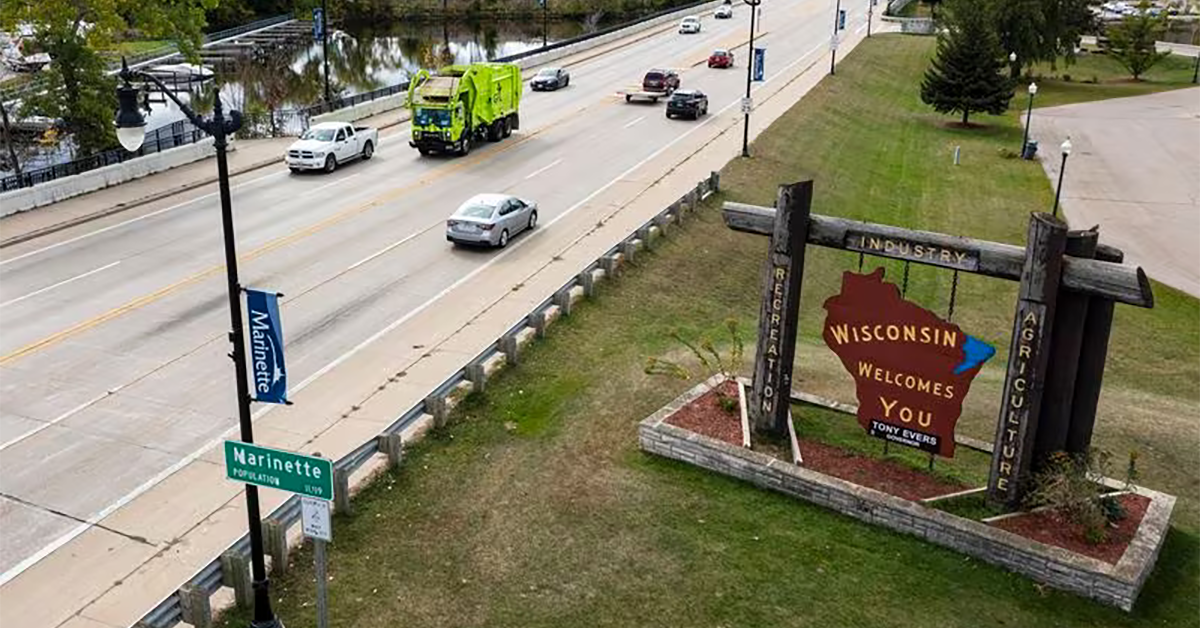
Heather Robertson, an employee at Rize, a recreational marijuana dispensary in Menominee, Michigan, has experienced frequent police stops upon returning to her home in Wisconsin, where marijuana remains illegal. She suspects these stops are due to her association with the dispensary, as officers often inquire about the presence of marijuana in her vehicle. Despite not receiving any tickets, Robertson's experiences highlight the growing tension at the Michigan-Wisconsin border following the legalization of recreational marijuana in Michigan.
This tension is evident in the rising number of marijuana-related citations in border counties. For instance, Florence County saw an increase from four citations in 2019 to 83 last year, coinciding with the commencement of recreational marijuana sales in Michigan. Similarly, Marinette city police reported a significant jump in citations, from 129 in 2019 to 548 last year.
Local residents and marijuana enthusiasts believe Wisconsin police are closely monitoring dispensaries and customers, particularly those with Wisconsin license plates. This suspicion has led to frequent warnings among dispensary clients about potential police stops upon re-entering Wisconsin.
Despite these concerns, Wisconsin law enforcement officials deny any targeted surveillance or marijuana enforcement operations. Marinette County Sheriff Randy Miller emphasizes that their primary focus is on combating more severe drug issues, such as fentanyl, heroin, and methamphetamine.
The availability of marijuana in Michigan and its illegality in Wisconsin has created a unique challenge for law enforcement. Officers often encounter marijuana during routine traffic stops, especially when dispensary packaging is visible. Florence County Chief Deputy TJ Peterson acknowledges the ease of finding marijuana on travelers, given the dispensaries at both ends of the border.
Kay Lynn Olesen's experience exemplifies this situation. Pulled over for minor traffic violations, a deputy noticed a dispensary bag in her car and issued a citation. Olesen, a Green Bay resident, where small amounts of marijuana are decriminalized, contested her ticket, expressing her desire for Wisconsin to follow the legalization trend.
Marinette, a bustling city connected to Menominee, Michigan, is experiencing growth, with increased job opportunities and a rise in felony cases. Police Chief Jon Lacombe, emphasizing the city's busy law enforcement agenda, refutes any notion of targeting marijuana users.
Despite higher marijuana possession citation costs in Marinette, former Police Chief John Mabry clarifies that revenue generation is not the objective. The city's budget reflects a minor contribution from court fines, including those for marijuana offenses.
Lacombe, with deep roots in Marinette, recalls a focus on combating heroin in the mid-2000s. He acknowledges the benefits of marijuana legalization, citing reduced risks compared to illegal grow operations and potentially tainted products.
In nearby Peshtigo, Police Chief Fred Popp foresees marijuana legalization as inevitable. He notes a shift in law enforcement perspectives over time, with more experienced officers viewing the issue in shades of gray rather than black and white.
This sentiment is echoed in Florence County's decision to train their drug-sniffing dog without marijuana detection, anticipating future legalization. The county is willing to forego marijuana citations, considering the broader implications for law enforcement.


 Helpful Links
Helpful Links